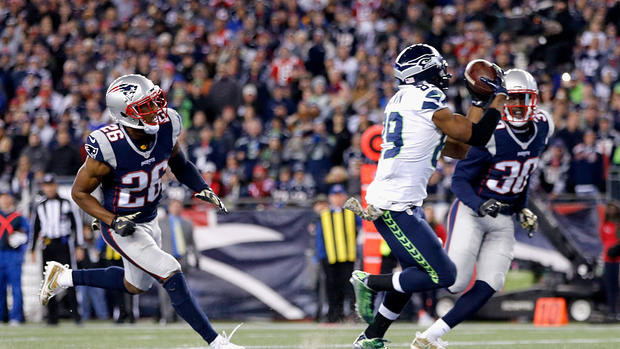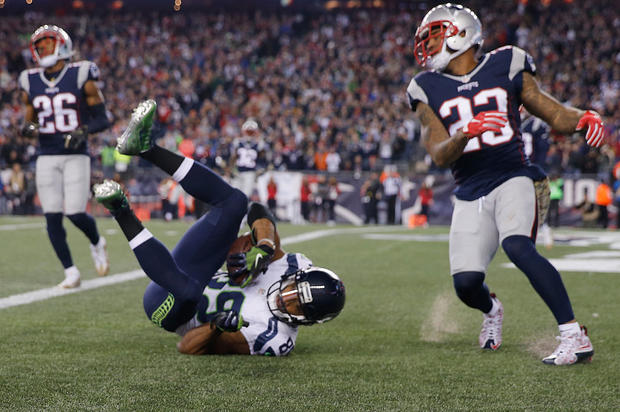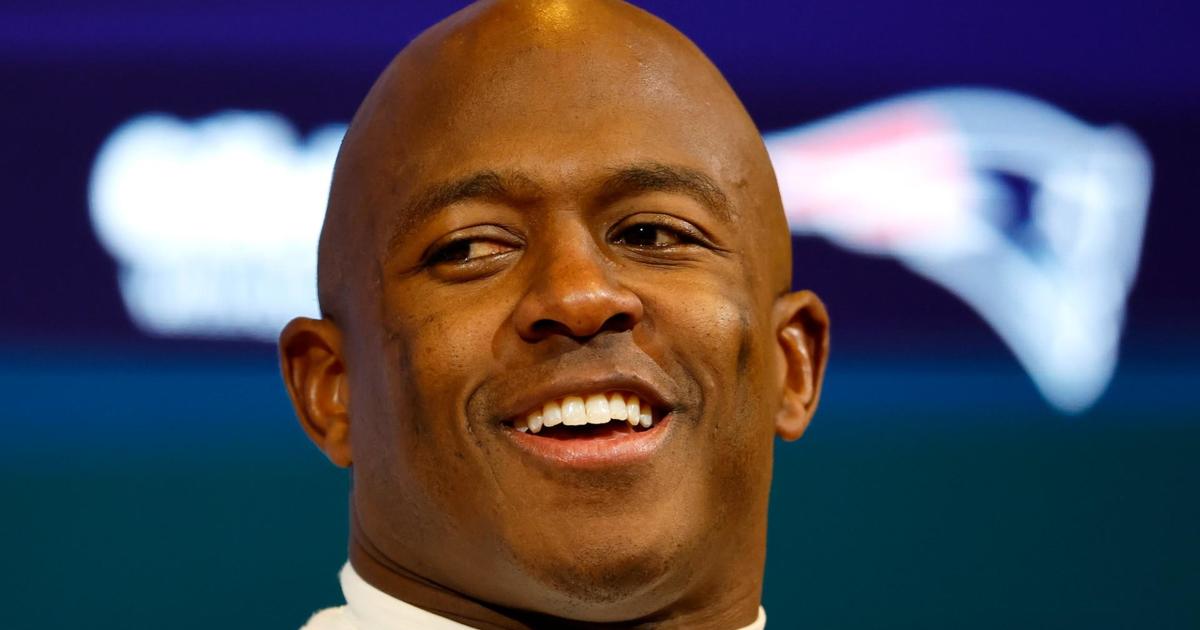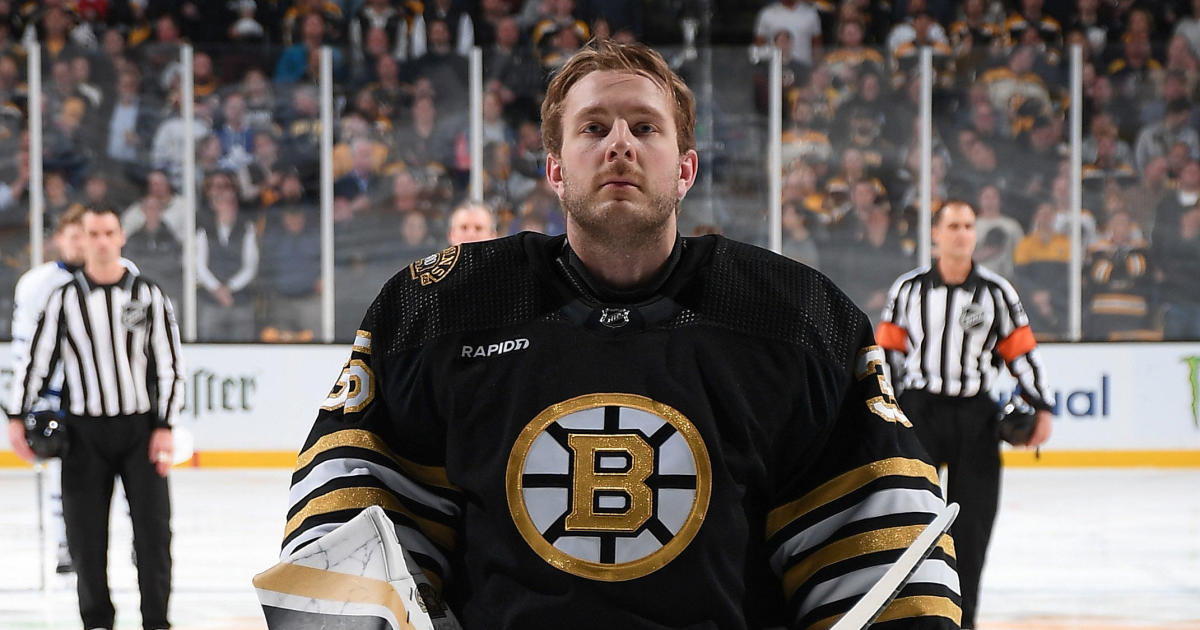Hurley: Patriots' Loss To Seahawks Helped Sharpen Championship Resolve
By Michael Hurley, CBS Boston
HOUSTON (CBS) -- Two years ago, when the Patriots were readying themselves to face the Seattle Seahawks in the Super Bowl, the players and coaches faced question after question (after question) about a game that had taken place a full four months earlier.
It, of course, was the famed Kansas City loss on Monday Night Football, an embarrassing performance that ended with Tom Brady sitting on the bench and Trent Dilfer asserting that the Patriots' run as a successful football team had come to an end.
Serving as an obvious "rock bottom" of the 2014 season, observers couldn't help but ask about that infamous performance all year long, right up until the Patriots took the field with a championship on the line.
Now once again preparing for another Super Bowl, the Seahawks who made those Patriots champions just might have helped do it again.
Though it's hardly gotten the attention that the 2014 Kansas City loss generated, the Patriots' Week 10 loss to the Seahawks (also a nationally televised prime-time game) proved immense in allowing this year's team to discover its flaws and strategize how to improve on the fly.
"Of course, you lose a game, you're going to have some more urgency," safety Patrick Chung said Tuesday from the Patriots' team hotel in Houston. "You're going to demand more of yourself, you're going to do more, and perform better. When it came down to it, that's what happened.
The Patriots lost that Week 10 matchup by just a touchdown, and indeed, they may have passed up an opportunity to score the game-tying touchdown in the final minute in favor of trying to drain the game clock. Brady admitted that his efforts were not wholly on getting into the end zone on a first-and-goal quarterback sneak but also on going down short of the goal line to force Seattle to use its final timeout.
And when Kam Chancellor's presence forced Brady's fourth-down pass to Rob Gronkowski to fall incomplete, the drain-the-clock strategy became an instant opportunity for second-guessing. However, it should be seen as an indication of just how little faith Bill Belichick and the Patriots had in the New England defense to prevent Seattle from mounting a game-winning drive in less than a minute.
To that point, the Seahawks had been having their way with that New England defense, amassing 420 yards -- 324 through the air, 96 on the ground, on 64 snaps. Russell Wilson completed 67.6 percent of his passes for 348 yards, three touchdowns and no interceptions, while C.J. Prosise and Christine Michael combined for 88 yards on 22 carries. Punter Jon Ryan was called upon just twice all night.
The specifics were not pretty, either. Playing their first game after the surprising Jamie Collins trade, the defense committed a pair of pass interference penalties, allowed Prosise to pick up chunks of 18 yards and 38 yards on two separate passes, and left Doug Baldwin completely unaccounted for just prior to halftime to score one of his three touchdowns on the night. On another Baldwin touchdown, the receiver got the best of Malcolm Butler in man coverage on the outside. Baldwin registered 43 percent of his touchdowns on the whole season that night.
Coming off their bye week, the Patriots were facing their biggest test of the season. And they failed.
"We go out there and we try to win every game. It doesn't always go that way, but you've got to learn from the wins and the losses. And that was definitely a loss that we learned from," cornerback Logan Ryan said. "We needed to play a little bit better in the red area, and we needed to play a little bit better on third down. It was not as bad as it looks. So we stuck with the process, played a little bit better in those areas, and you've seen the result."
When it came time to get back on the practice field, Ryan said that the week that followed the loss was, for the most part, business as usual.
"All our weeks of practice are hard. There's wins that aren't good enough sometimes. So there's wins where we have tough practices after [them]," Ryan said. "So we're always going to have tough practices. But this team competes, man. We go at it every single day. Our receivers and our DBs, we go at it every single day, I think more than [any other year] since I've been here. So it's a competitive edge on both sides of the ball, trying to win, having Tom Brady out there making us better players."
In the Seahawks game, Brady's offense putting up 24 points and gaining 385 yards on 62 plays reflected well on that part of the team. But really, the ability of Tom Brady and the offense to score points was never in question. What wasn't known was just how well the New England defense could stand up to a potent offense.
And though they allowed 31 on that night, here is how the Patriots' defense responded for the next nine weeks in terms of points allowed:
17
17
10
23
3
3
14
16
17
On average, they allowed just 14 points per game. That high of 23 points allowed came when special teams turnovers gave two short fields to Baltimore.
Not coincidentally, the Patriots have won all nine of those games.
As for what can be learned in such a game, even an 11-year NFL veteran like Rob Ninkovich can be reminded of the harsh realities of the NFL.
"Throughout the year, there's always going to be those ups and downs," Ninkovich said Monday night at Media Day. "I can remember back to 2012, we were 2-2 to start the year. So it was kind of like that kick in the gut that you need to say, 'Hey, let's go.' So this year, the Seattle game, it was a hard-fought game, it came down to the end, it came down to one play. We understood that was going to be the case with a team that was that explosive and that good. And when you come down to these games in the playoffs, it's all about execution and understanding that the other team is a really good football team. It can be a play in the first quarter or a play in the third quarter -- you don't know what play is going to determine the outcome of a game. That's why every play is so important."
As it relates to this weekend, Ninkovich has the experience of both losing a Super Bowl and winning a Super Bowl to know firsthand the vast gap between the two feelings.
"When you lose, it hurts," Ninkovich said. "It's just like, after a game, I don't remember the good plays. I only think about the bad plays. You definitely remember the tough time of losing a Super Bowl, so that's why you've got to put everything you've got into preparing and being ready to go."
Now, it must be stated that the Patriots did face some of the league's weaker offenses during that span, including the Rams, Jets, Texans and 49ers. Still, they held those opponents below their season average for points scored in eight of the nine games. In fact in those eight games, they kept those opponents a full touchdown below their average points per game.
It also must be stated that this coming Sunday, the Patriots will be facing a much different animal, as the Falcons boast the No. 1 scoring offense in the league. They're coming off a pair of playoff victories in which they scored 36 and 44 points. The Patriots did not face any team on the Falcons' offensive level all year long. But given what they learned in that loss to Seattle -- and how dominantly they've performed ever since -- the team once again has confidence that it can turn those unpleasant lessons into a Super Bowl-winning performance.
"[We learned] we can play better than that," Chung said. "You know, we have a lot of good players, a great scheme, good coaches, and that was kind of a wake-up call. We hated that taste and we just, after that, we just played ball."
You can email Michael Hurley or find him on Twitter @michaelFhurley.





